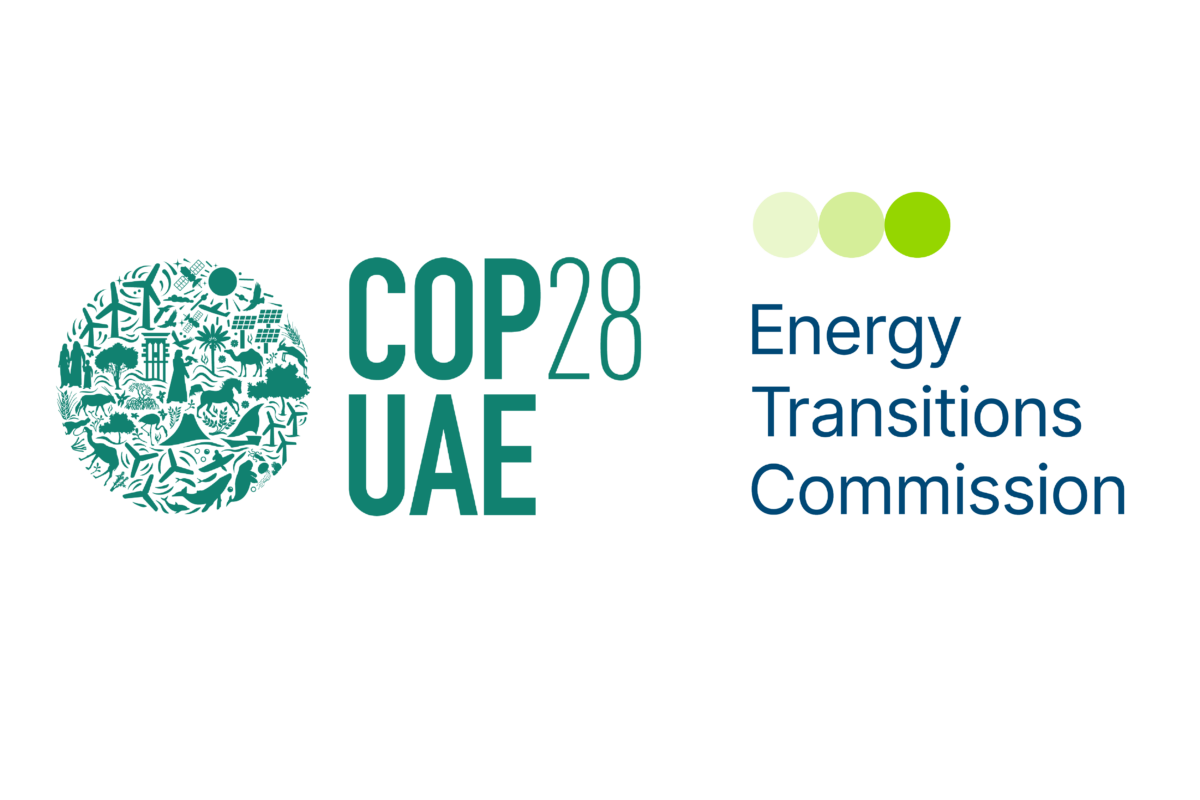30 November 2023 – COP28 provides a milestone moment to take stock of the progress achieved since the COP21 Paris Agreement. Time is running out to meet the targets agreed and immediate action is now required if the world is to have a chance of limiting global warming to 1.5°C.
The need for urgent action has been highlighted by the ETC, a global coalition of leaders from across the energy landscape committed to achieving net-zero emissions by mid-century. COP28 must therefore gain global agreement to rapidly phase down fossil fuel use, triple renewable energy, and more than double clean energy investment.
“If we are to achieve the targets set out in the COP21 Paris Agreement, COP28 must achieve a resounding commitment: a swift and resolute global phase-down of fossil fuel use, ensuring any remaining usage is offset by CCUS and carbon removals. Time is running out; this decline must start now. Nations and fossil fuel-producing companies must commit to a significant reduction in coal, gas, and oil consumption by 2030. A global target to triple renewable energy capacity by 2030 can act as a beacon, signalling the need for unprecedented renewables deployment to replace carbon-emitting energy. To fuel this transition, we need to more than double investments in clean energy within the next two decades, to $3.5 trillion annually between now and 2050. Finding consensus at COP28 is critical in addressing the urgent challenge of climate change.” Adair Turner, Chair, Energy Transitions Commission.
The ETC has called for the following at COP28:
- Gain global commitment to the rapid phase-down of fossil fuel use and ensure any remaining use by mid-century is fully offset by CCUS and carbon removals.
The world can and must rapidly phase down the use of all fossil fuels beginning now, with coal use down around 15-30% by 2030, gas by 15-20% and oil by 5-15%. COP28 should reiterate the COP26 commitment to phase down the use of coal and gain commitments from all countries and governments to phase down the use and production of oil and gas.
World leaders should seek commitments from all fossil fuel-producing companies to reach net-zero scope 1, 2, and 3 emissions by around mid-century. CCUS and carbon removals will play a role in offsetting some of these emissions but it cannot be used to justify business as usual production levels for these companies. Production and transport of fossil fuels contribute just 17% of total emissions from fossil fuels, accounting for 6.5 Gt of CO2e emissions, compared with the ~31.5 Gt which result from fossil fuel use. Any serious strategy to address the challenge of climate change must also include commitments to run down the use and supply of fossil fuels. Future conferences must aim to gain consensus about how fast fossil fuel use can and must decline by mid-century.
- Agree on a global target to triple renewable energy capacity to 11,000 GW by 2030.
A strong global target by 2030 sends a clear signal to governments, industry, investors and civil society on the unprecedented scale and speed of renewables deployment required over the next seven years to limit global warming to a 1.5°C pathway. Wind and solar generation must grow from 12% of total electricity generation (in 2022) to around 40% by 2030, and over 75% by 2050.
This speed and scale-up will only be achieved if countries take the necessary actions to remove the barriers to clean electrification – streamlining planning and permitting, increasing grid investment and restructuring power market design to support this rapid roll-out. Transitioning to electricity as the main source of final energy is the cheapest and most efficient way to decarbonise the global economy.
- Drive agreements to more than double investments in clean energy within the next two decades.
Capital investment of around $3.5 trillion per annum will be needed on average between now and 2050 to build a net-zero global economy, up from $1.5 trillion per annum today.[1] Of this, 70% is required for low-carbon power generation, transmission, and distribution, which underpins decarbonisation in almost all sectors of the economy.
The expected decline in investment in fossil fuels will offset some of the total investment required, bringing the total to $3 trillion per annum, or around 1.3% of annual global GDP over the next three decades. Investment will need to grow from $1.5 trillion today to $2 trillion by 2025, and $3 trillion by 2030. This requires a doubling of investment in high-income countries and China by 2030, but a four-fold increase in middle- and low-income countries.
COP28 should drive agreements to close the financing gap, in particular, to support middle and low-income countries to reduce emissions as soon as possible through early coal phase-out, ending deforestation and delivering carbon dioxide removal solutions. In total, this could require at least $300 billion per annum.
“Current efforts to reduce emissions from the production, processing and transportation of fossil fuels are a step forward but far from sufficient to limit global warming to a safe level. Agreements to rapidly phase down fossil fuel use, triple renewable energy capacity and more than double annual investments in clean energy by 2030 are crucial to achieving faster reductions. The world will be holding its breath for COP28 to land commitments to deliver these actions.” Ita Kettleborough, Director, Energy Transitions Commission.
The Energy Transitions Commission
The Energy Transitions Commission (ETC) is a global coalition of leaders from across the energy landscape committed to achieving net-zero emissions by mid-century whose members include ArcelorMittal, bp, HSBC, Iberdrola, RMI, Shell plc, SSAB, Tata Steel, Vattenfall, Volvo, Worley, We Mean Business Coalition, World Resources Institute and Ørsted. Members of the ETC endorse the general thrust of the arguments made by the ETC but should not be taken as agreeing with every finding or recommendation. The institutions with which the Commissioners are affiliated have not been asked to formally endorse these messages.
The ETC’s ambition is to inform the decisions of public and private decision-makers and support the leaders at the forefront of climate action to speed up the deployment of low and zero-carbon solutions. Since its creation in 2016, the ETC has strengthened its position as a unique voice in the international climate and energy debate, analytically robust and industry-backed, engaging with and influencing policymakers, industry players, financial institutions and civil society stakeholders.
Notes to editors
For further information on the ETC please visit: https://www.energy-transitions.org
To read the ETC’s new report on Fossil Fuels in Transition visit: https://www.energy-transitions.org/publications/fossil-fuels-in-transition/
ETC at COP28: Adair Turner (Chair), Mike Hemsley (Deputy Director) and Caroline Randle (Director of Communications) will be at COP28. Please send interview requests for the ETC team to Caroline Randle [email protected] and Lina Morales [email protected].
Media contacts:
Caroline Randle, Energy Transitions Commission – Email: [email protected]
Susan Brownlow – [email protected]
[1] This $1.5 trillion investment in 2023 is based off of the IEA’s $1.7 trillion estimate adjusted for some investment categories not included in ETC analysis of investment for a net-zero economy (e.g. some energy efficiency investments, cost of EVs).


